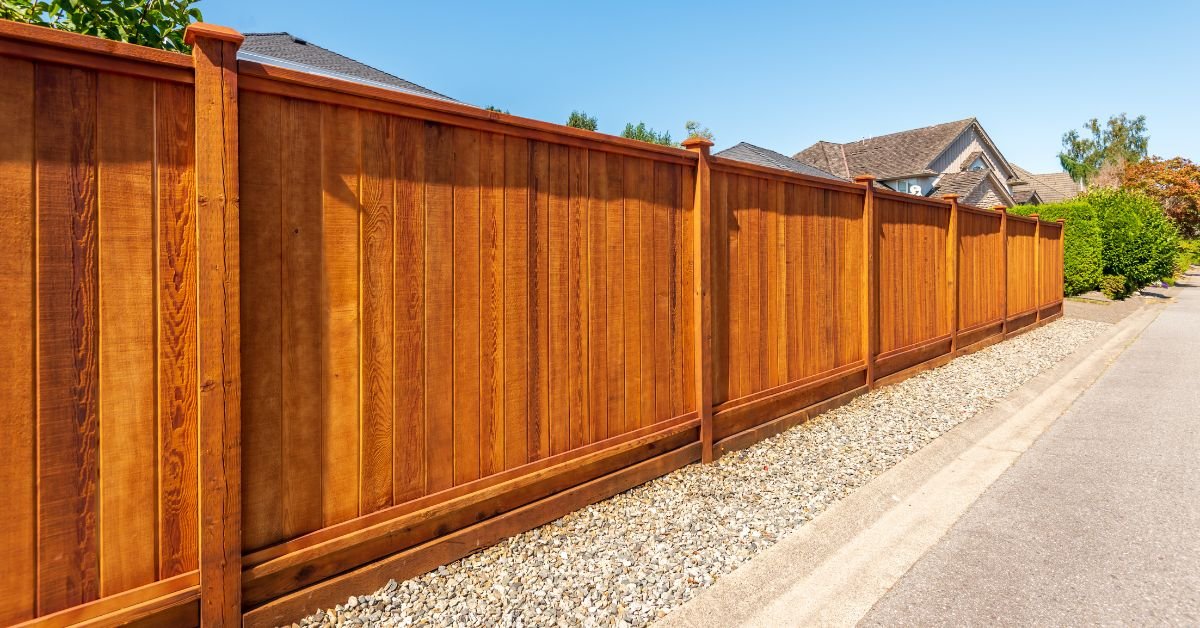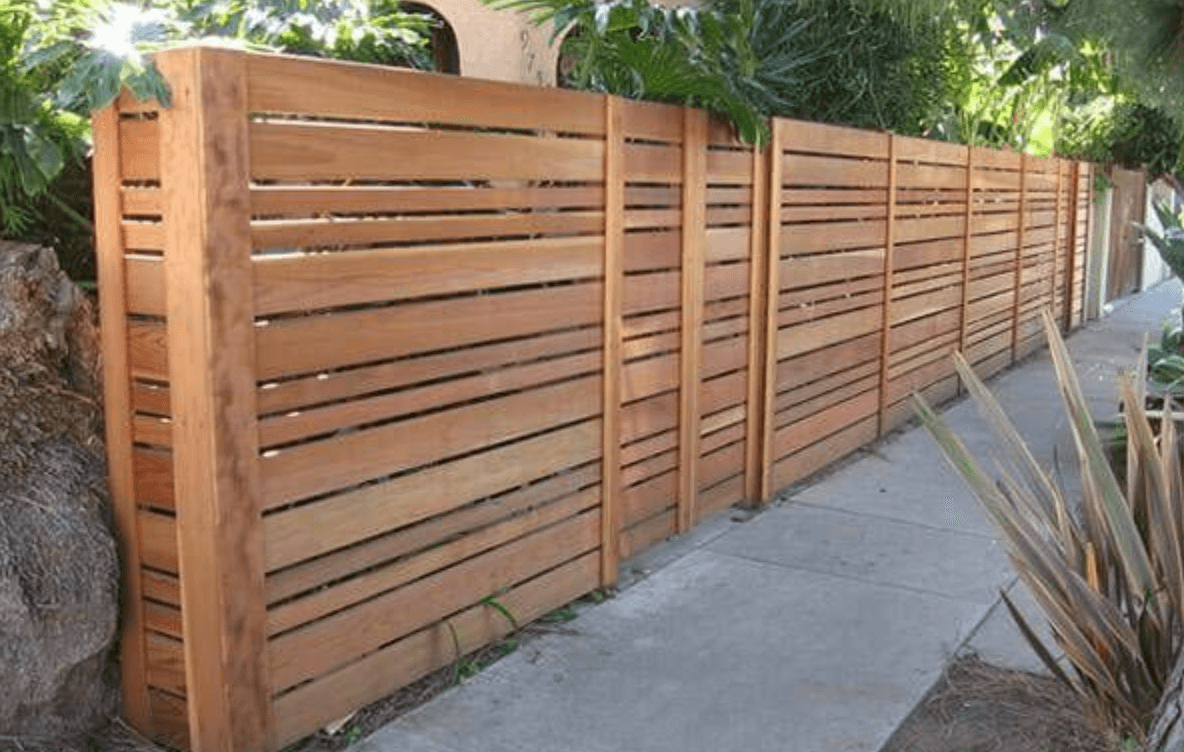All Categories
Featured

When it comes to choosing the appropriate secure fencing material for your building, plastic, timber, and light weight aluminum are among the most preferred alternatives. Listed below, we damage down the advantages and negative aspects of these 3 typical secure fencing materials.
Timber Secure Fencing. Pros:
Aesthetic Allure: Wood fences give a natural, classic look that complements most kinds of landscape design and design. They can be quickly customized with paint or discolor, offering you the freedom to create the best shade and finish for your residential property. Convenience: Wood can be made use of to create a variety of fence styles, from traditional picket fences to extra modern styles like privacy fencings or rustic ranch-style fences. It's very easy to include or customize to in time if your needs transform. Cost: Timber is typically a lot more inexpensive than vinyl or light weight aluminum, making it an appealing selection for homeowners on a budget plan. The preliminary price of a timber fencing is normally reduced than the other products. Disadvantages:

Upkeep Requirements: Wood fencings call for regular maintenance, including staining, sealing, or paint to safeguard them from weathering, rot, and bug damage. Without proper care, timber can degrade quickly. Sturdiness: Wood is at risk to harm from parasites like termites, and it can warp, fracture, or split gradually due to direct exposure to the components. In locations with extreme weather, timber may require to be replaced extra frequently than various other products. Restricted Life expectancy: While timber fencings can last for years with proper care, they normally have a much shorter life expectancy than plastic or light weight aluminum fencings. Plastic Secure fencing. Pros:
Low Upkeep: One of the most significant benefits of plastic fencing is its reduced maintenance needs. Unlike wood, plastic doesn't require to be repainted, tarnished, or sealed. It's resistant to fading, cracking, or bending, making it ideal for homeowners that want a problem-free fence. Longevity: Vinyl fences are immune and extremely sturdy to the aspects, including UV rays, rainfall, and moisture. They're also impervious to pests, such as termites, that can damage wood fencings. Variety of Styles: Plastic fences come in a vast array of shades and styles, and many simulate the look of timber without the maintenance drawbacks. You can choose from personal privacy fencings, picket fencings, and more to fit your demands. Lengthy Life expectancy: With appropriate treatment, vinyl fencings can last years, much longer than wood fences, and they come with warranties that supply assurance. Cons:
Greater First Price: While plastic fences can conserve cash on upkeep over the years, they often tend to have a higher in advance price than timber fences, which might be a deterrent for some buyers. Restricted Modification: While plastic fences are offered in a range of designs and shades, they do not have the modification versatility that timber provides. You're limited to the pre-designed panels available, which may not suit every distinct aesthetic. Potential for Fracturing in Cold Climates: In severe chilly temperature levels, vinyl fencings can come to be fragile and might fracture under effect, making them less suitable for areas with freezing wintertimes. Light weight aluminum Fence. Pros:
Longevity and Stamina: Aluminum is a lightweight yet solid material that stands up to rust and corrosion, making it perfect for coastal locations or places with high humidity. Light weight aluminum fencings need very little maintenance and can stand up to the components for many years. Visual Appeal: Aluminum fencings provide a sleek, modern-day look. They are available in a range of decorative styles and can be used to produce a more stylish or modern try to find your home. Reduced Maintenance: Light weight aluminum fencings do not require paint or sealing, and they're immune to corrosion and corrosion, making them exceptionally low maintenance gradually. Safety and security: Aluminum fencings give a higher degree of protection compared to vinyl or wood fences because of their strong construction. They can be equipped with gateways and locks to provide a safe border around your home. Cons:

Expense: Aluminum fences are commonly a lot more costly than timber or vinyl fencings, both in terms of materials and installment expenses. This higher cost point can be a drawback for budget-conscious homeowners. Much Less Privacy: Light weight aluminum fences generally have a more open layout, with pickets spaced apart to enable visibility with the fence. This might not be the best option for your property if personal privacy is a concern. Prone to Denting: While aluminum is rust-resistant, it can still be dented or curved if struck with force, such as by a lorry or hefty devices. While it won't rust, it might not keep its pristine look if it obtains damaged. Which Material is Right for You? Picking the most effective fence product relies on your details requirements, budget plan, and lasting strategies for your building. Timber might be your finest option if you value aesthetic personalization and are prepared to preserve it regularly. Vinyl could be the perfect remedy if you prefer low-maintenance resilience and are ready to invest a bit much more upfront. On the other hand, if you need a resilient, protected fence with a streamlined appearance, light weight aluminum might be the right material for you.
Inevitably, consider your environment, upkeep preferences, and visual desires when selecting your secure fencing material. Each option has its weak points and toughness, but with the best care and installation, all 3 can supply dependable and attractive limits for your building.
Latest Posts
Learn About Auto Services & More: Comprehensive Auto Care Solutions from Montclare Auto Repair
Published en
1 min read
Selecting the Right Roofing System Color: Effect On Power Performance
Published en
1 min read
Learn About Auto Services & More: Complete Auto Care Solutions from Montclare Auto Repair
Published en
1 min read
More
Latest Posts
Learn About Auto Services & More: Comprehensive Auto Care Solutions from Montclare Auto Repair
Published May 28, 25
1 min read
Selecting the Right Roofing System Color: Effect On Power Performance
Published May 24, 25
1 min read
Learn About Auto Services & More: Complete Auto Care Solutions from Montclare Auto Repair
Published May 24, 25
1 min read